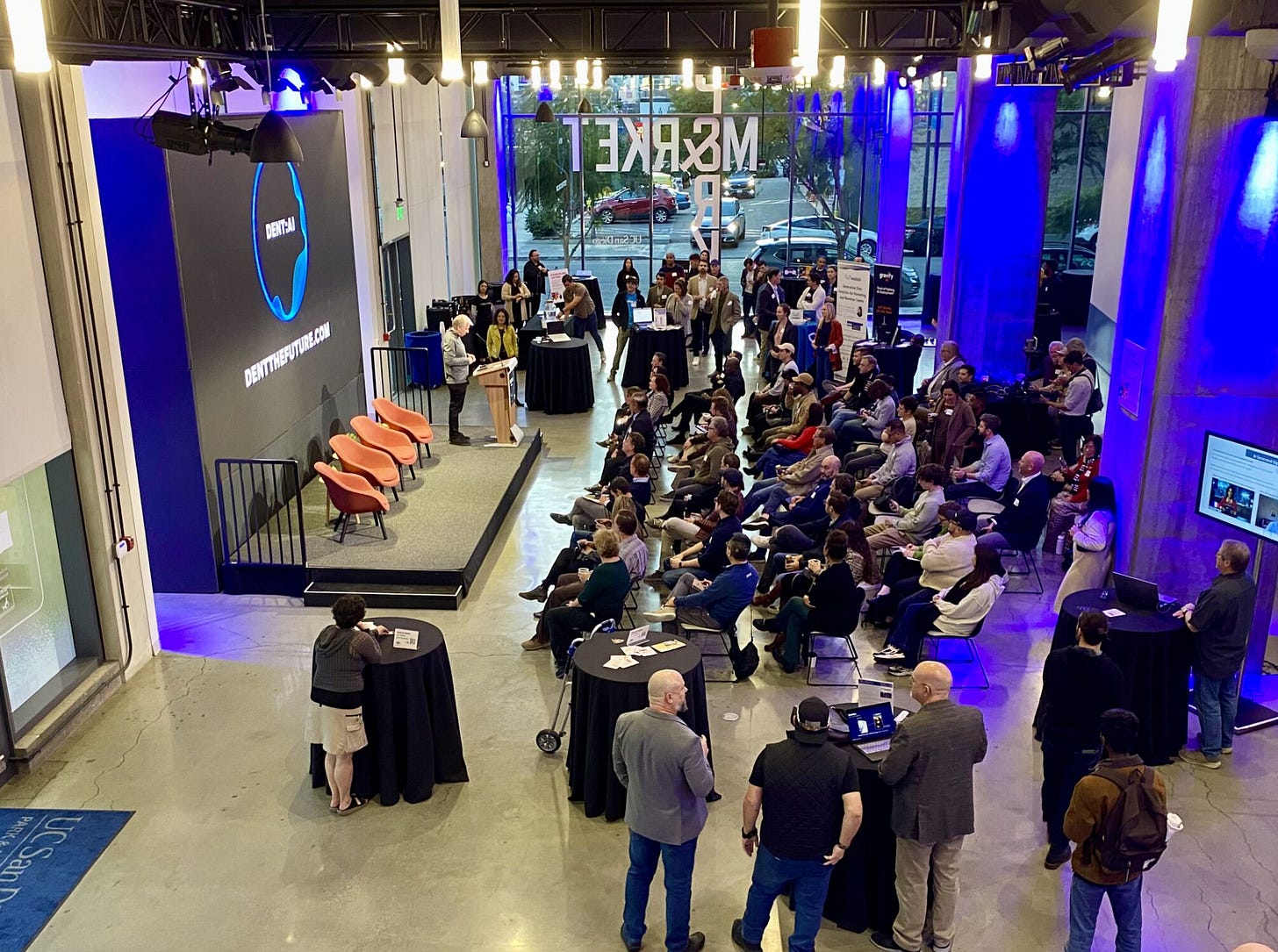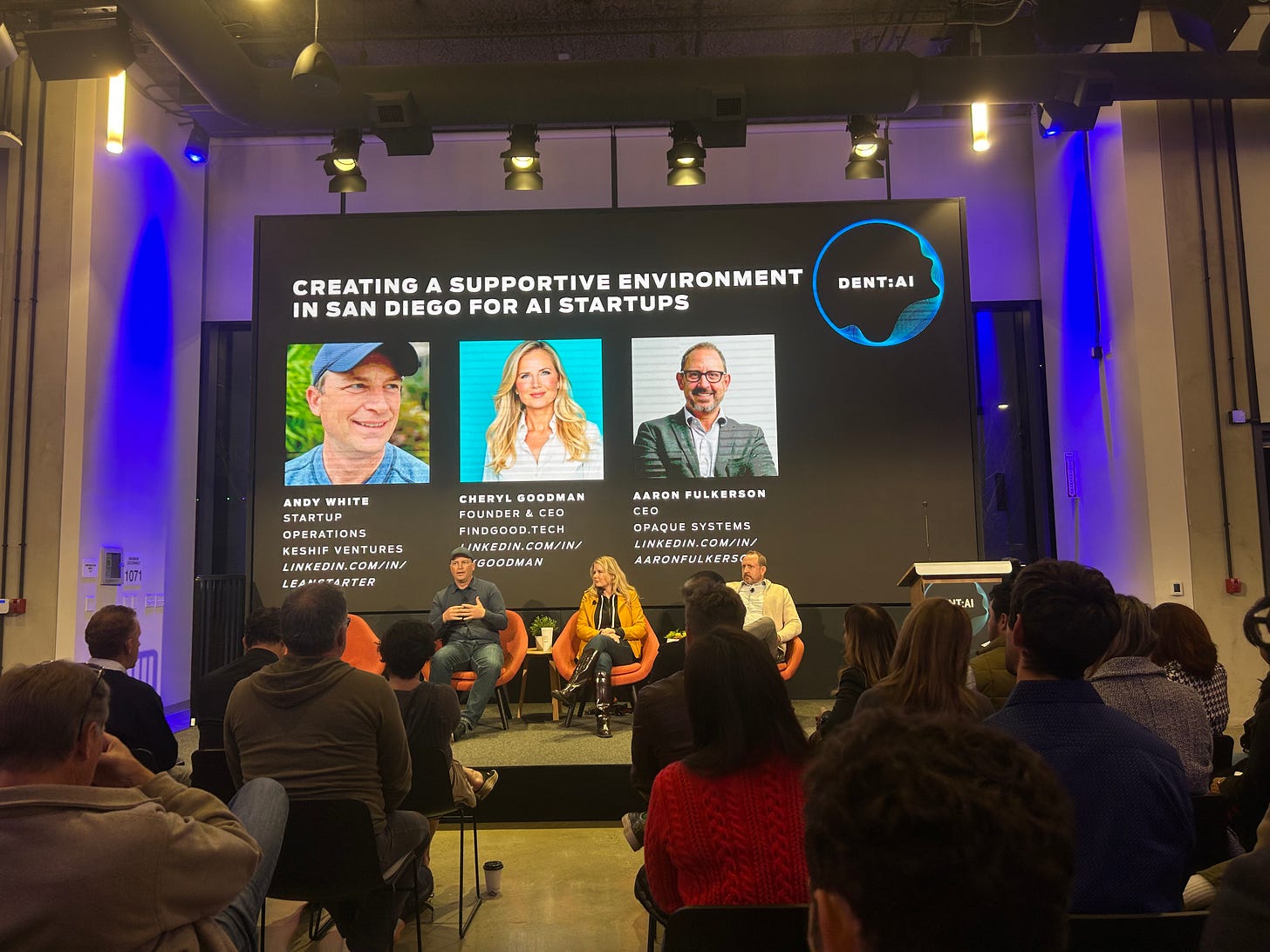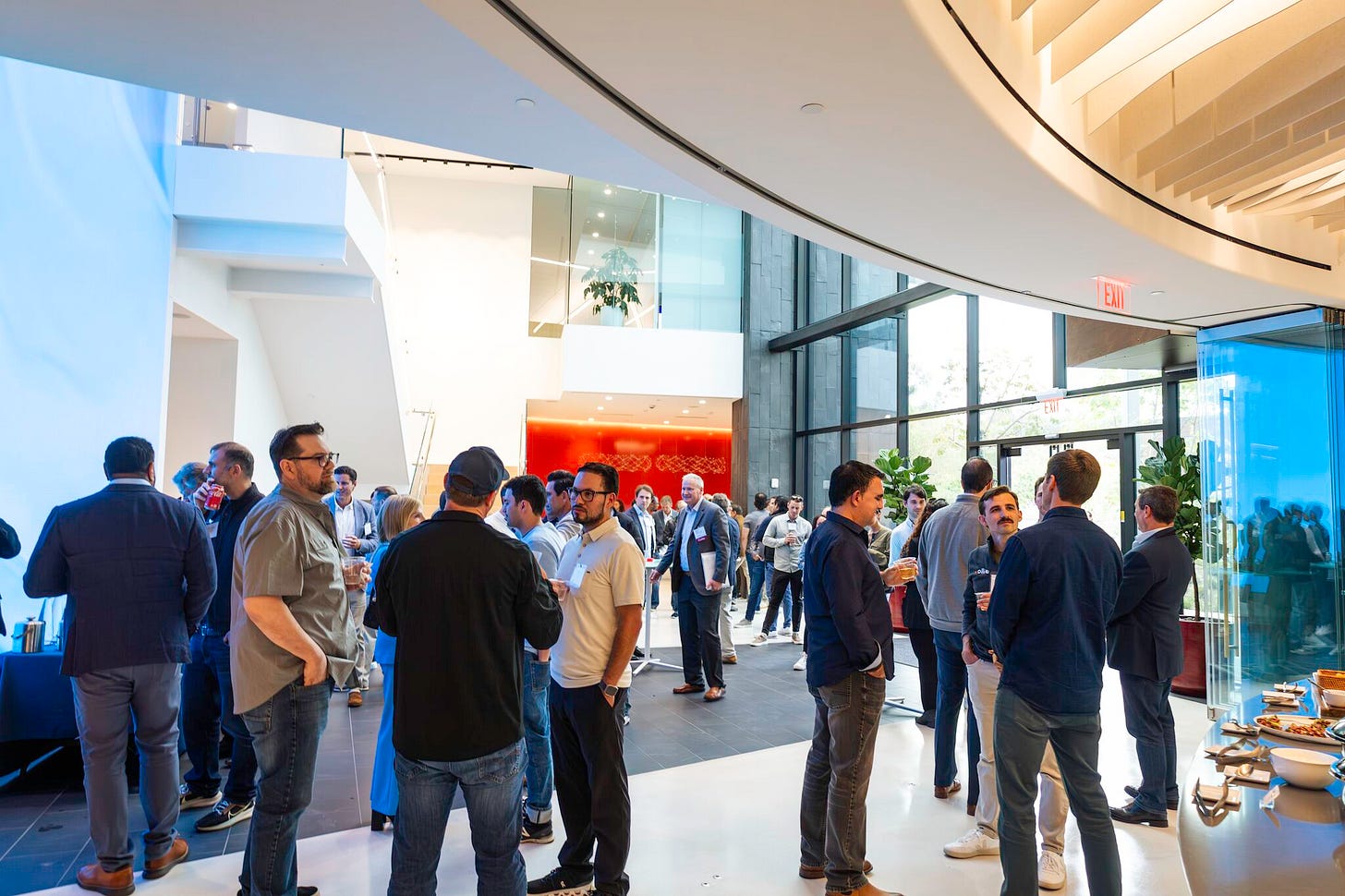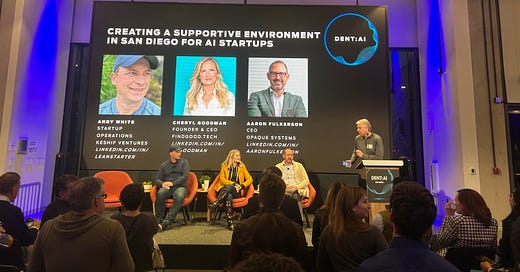Event Recap: San Diego's AI Startup Ecosystem and Momentum in 2025
San Diego is well-positioned to ride the AI wave according to executives and investors
Business of San Diego delivers in-depth profiles of founders and insights on San Diego's most successful companies, executives, and technologies. Subscribe to make sure you don’t miss the next story.

More than 200 founders, investors and tech-focused business professionals registered to attend a series AI-related panel and startup networking event in Downtown San Diego at UC San Diego’s Park and Market’s event space on Monday, January 27.
The 3-hour event was hosted by Seattle-based Dent The Future, in collaboration with several sponsors including FindGood.Tech and Interlock Capital.
The 30-minute panel called “Creating a Supportive Environment for AI Startups in San Diego,” shared fresh perspectives on current artificial intelligence boom and how the startup ecosystem is positioned to benefit from it.
Panelists included early-stage technology startup investor Andy White at Keshif Ventures; Cheryl Goodman co-founder at Turing AI, a pre-seed stage AI startup; and Aaron Fulkerson, chief executive office at Opaque Systems, a $22 million Series A company based in the San Francisco area.
Executives and investors believe San Diego is well-positioned to ride the AI wave, fostering creation of ‘hundreds of new startups’ over the next three to five years.

China’s AI Model DeepSeek Drives Volatility
Before kicking off the 30-minute panel, featured experts on the stage talked about the release of China’s AI model DeepSeek which sent shockwaves in the public markets.
Aaron Fulkerson, CEO of Opaque Systems, said the release of DeepSeek reminded him of when Google’s internal memo, which was leaked last year — which news outlets reported that the internet search giant told its teams it no longer has a moat.
“This was expected, personally I think companies have gone overboard with the investment in compute,” said Fulkerson, who left ServiceNow in 2023 to build a confidential AI platform. “Everyone believed they had to buy a ton of GPUs.”
“People knew we would reach peak data,” said Fulkerson. “Which means all of the world’s data on the internet has been used to train models; i.e. primarily training data that’s freely available publicly on the internet. So then what’s the next phase?"
“Well, most of the innovation we’re seeing today is taking place by utilizing highly sensitive, enterprise data, that is unique to a specific domain or a specific domain or business,” said Fulkerson. “The next phase isn’t going to be a leg race with models through GPUs; instead it’s going to be — how do you unlock the enterprise data.”

Venture Capitalist Shares Thoughts on AI Trends in 2025
“You can split the ecosystem broadly into two categories: the platform and the apps,” said Andy White, startup operations and investor at Keshif Ventures.
Much of the excitement about the AI boom is related to the opportunity and potential return ahead. During the panel, Cheryl Goodman, co-founder of AskTuring.ai, asked Andy whether venture firms are seeing an uptick of novel AI companies and ideas.
“The first half of last year was transitional technology. Founders would take OpenAI, put a wrapper on it, and apply it to an industry A - Z,” said White. “This trend was everywhere and not very interesting. By the end of 2024, we’ve started to figure out areas where AI technology can allow us to do things differently and better.”
Among the most active local investors in San Diego, Andy was hired by Taner Halıcıoğlu to help operate Keshif Ventures roughly six years ago — tasked with backing emerging startups that are data science-centric, which includes AI.
“The current V.C. investment infrastructure has historically been designed for startups to raise a bunch of money, go out and attack a big market, and eventually between 10 and 13 years that company sells or goes public.”
“We’re not seeing as many companies go public as of today,” said White. “M&A activity hasn't picked up either — which means there hasn’t been as many exits. Hopefully that will change in the years to come.”

San Diego’s AI Ecosystem Builds Momentum in 2025
The panelists emphasized that San Diego is different than traditional hubs including San Francisco, which host dozens AI-related events on any given week.
Over the last twelve months, San Diego has seen renewed energy in the startup ecosystem — largely driven by excitement over new AI startup applications.
“I’ve seen more events in this last year than I have ever seen in the history of San Diego,” said Goodman. “There’s an unmet desire for more events and connecting.”
Fulkerson, noted that San Diego isn’t comparable to San Francisco’s booming AI ecosystem, which hosts upwards of 500-plus events on any given year.
“When I’m in San Francisco and I get a cup of coffee, I’ve got the barista pitching me or asking me about my AI startup. Everywhere I go, there’s somebody who is on the hustle, on the move, etc.” said Fulkerson, who splits his time between San Francisco and San Diego. “I choose to live in San Diego because that’s not the case here.”
Roughly 80% percent of his workforce work from the office in San Francisco and the remaining are spread out in major hubs including New York, Boston and San Diego, he told me over email.
“San Diego is a unique community that is differentiated from any other place,” said Fulkerson. “There’s a lot of very senior people as well as people who are up-and-coming that are still early in their career that many aren’t aware of — who choose to live in San Diego. It gives the region a unique characteristics.”




